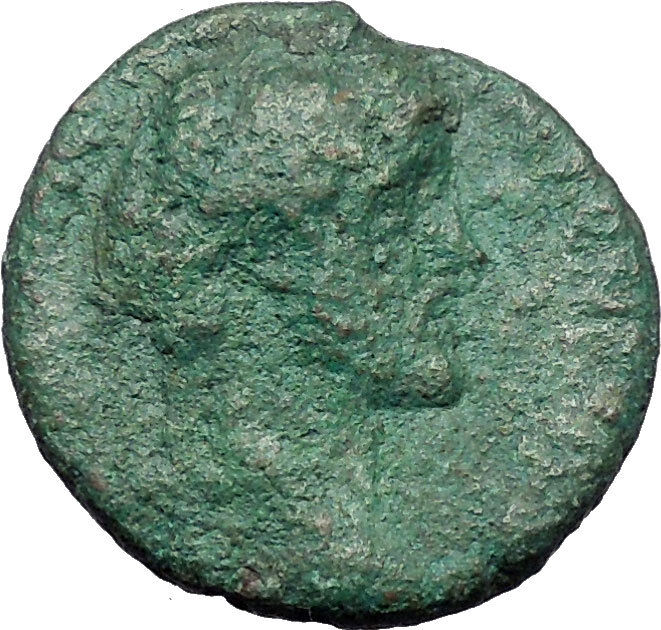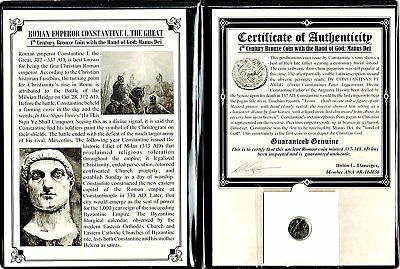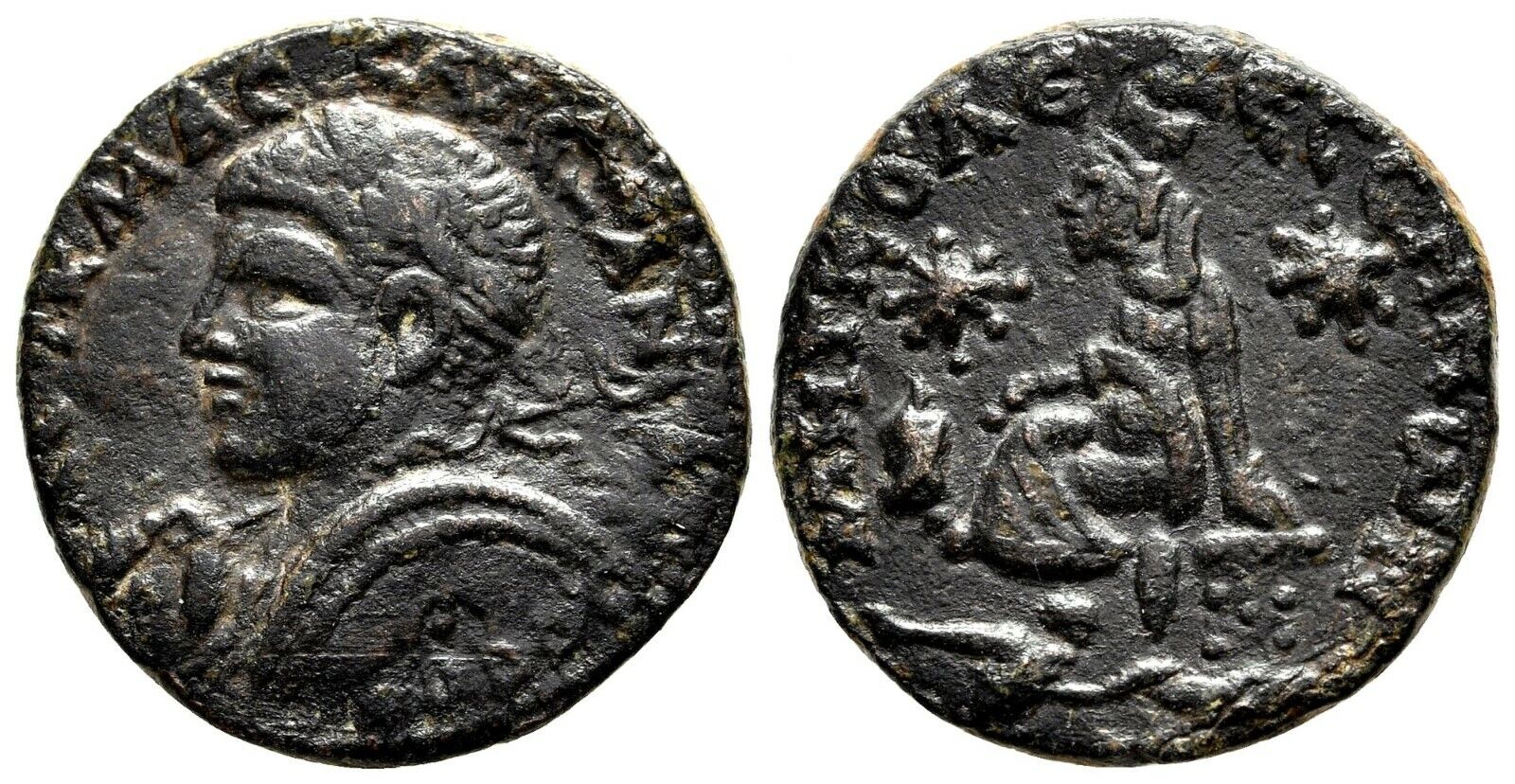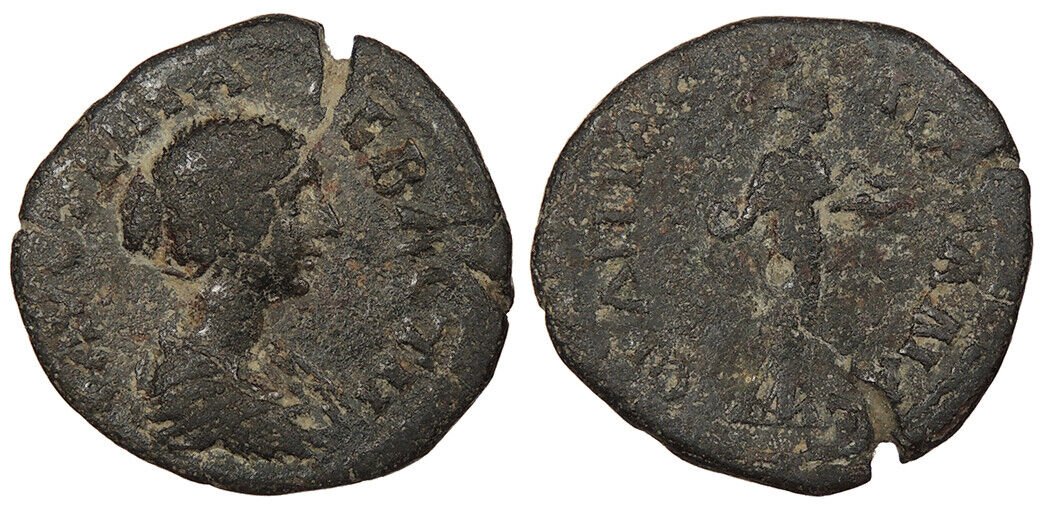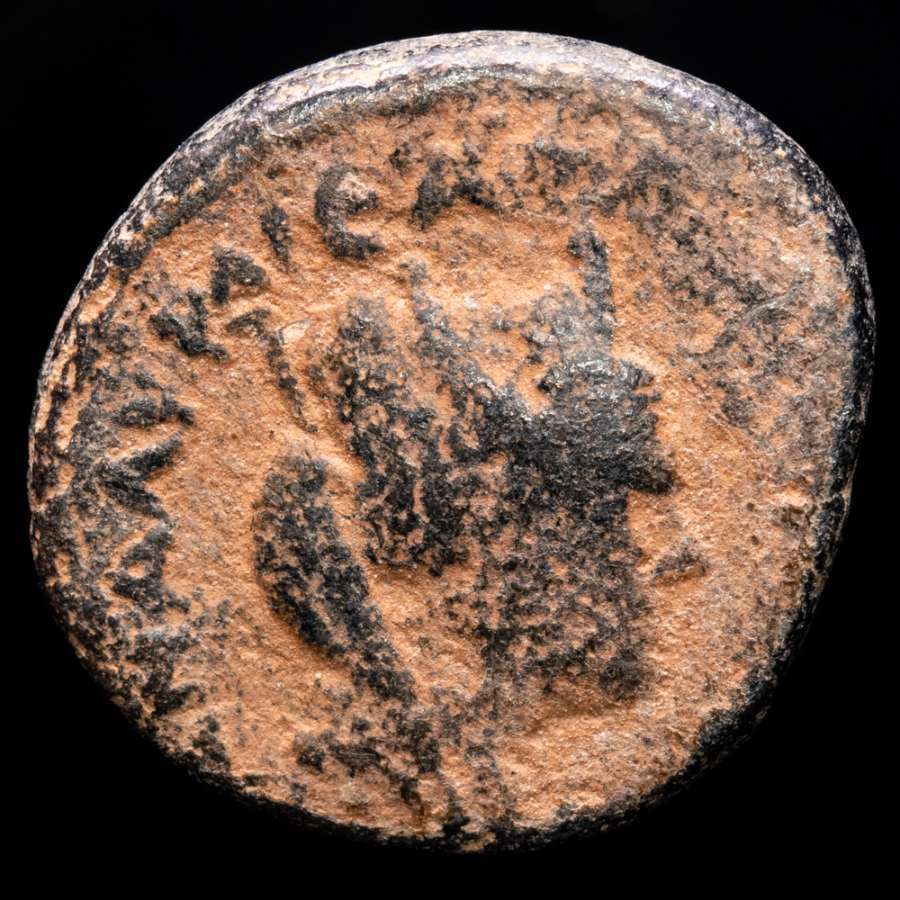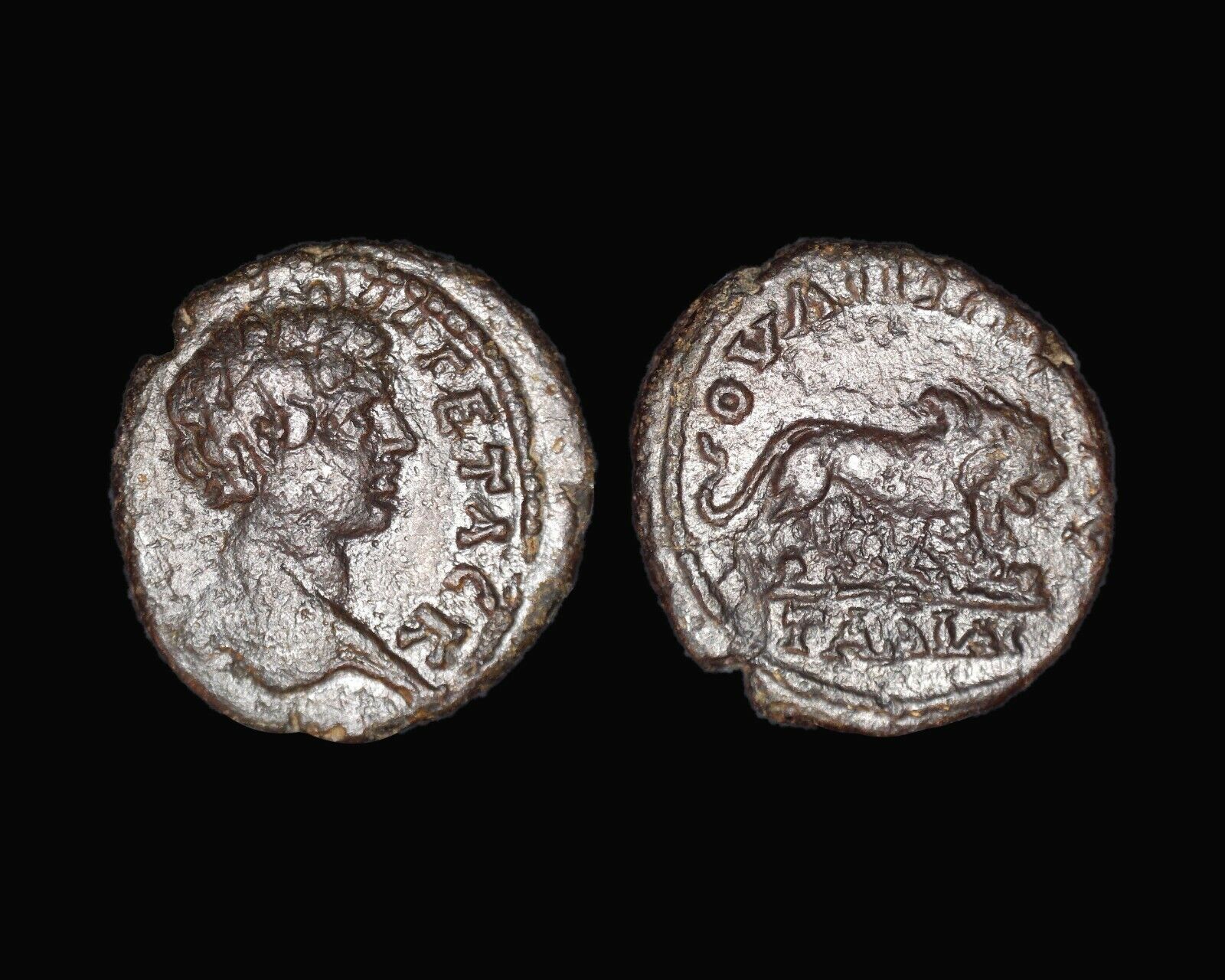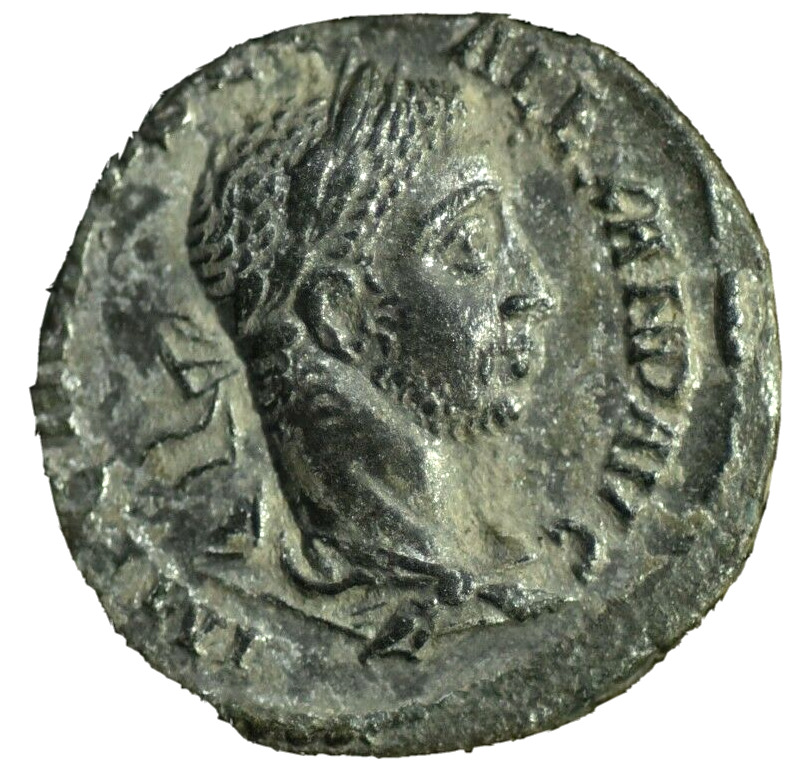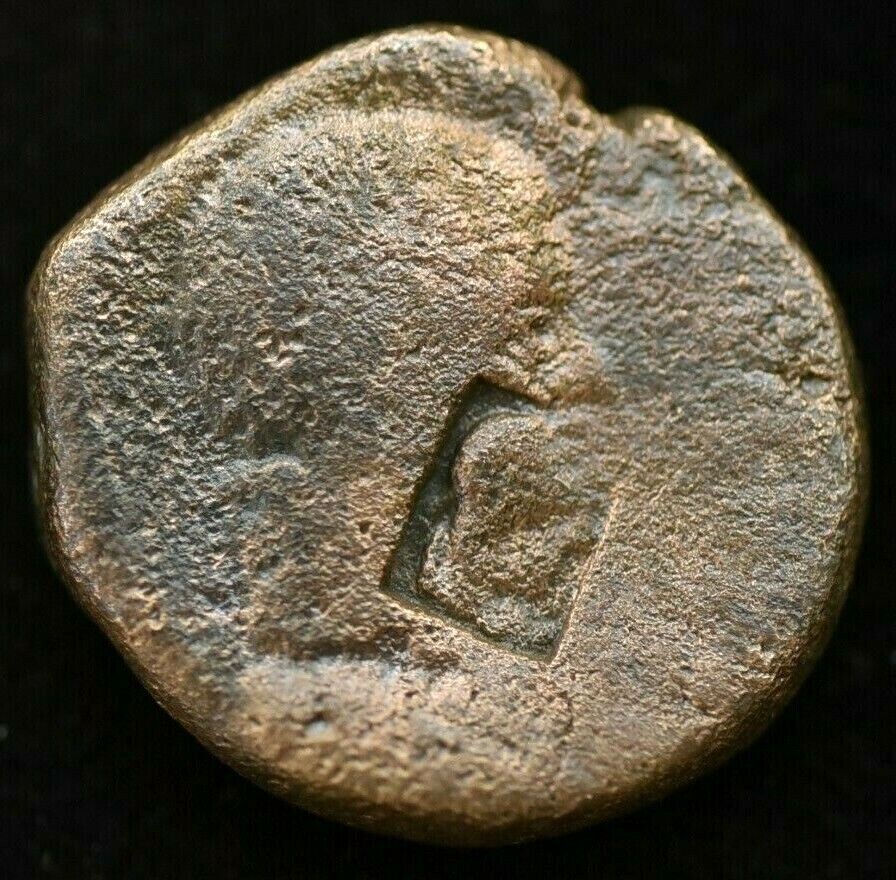-40%
ANTONINUS PIUS Marcus Aurelius Father Ancient Roman Coin Thunderbolt i48549
$ 58.08
- Description
- Size Guide
Description
Item:i48549
Authentic Ancient Coin of:
Antoninus Pius - Roman Emperor: 138-161 A.D.
Father of Marcus Aurelius
Bronze 25mm (9.19 grams)Struck in the Province of Macedonia 155-161 A.D.
Reference: Moushmov 5888; SNG Cop 1341 -
KAIΣAP ANTΩNEINOΣ, laureate head right
KOINON MAKEΔONΩN, winged thunderbolt of Zeus.
You are bidding on the exact item pictured, provided with a Certificate of Authenticity and Lifetime Guarantee of Authenticity.
A
thunderbolt
is a symbolic representation of incidents of observed
lightning
when accompanied by a loud
thunderclap
. In its original usage the word may also have been a description of meteors, or, as
Plato
suggested in
Timaeus
,of the consequences of a close approach between two planetary cosmic bodies, though this is not currently the case. As a divine manifestation the thunderbolt has been a powerful symbol throughout history, and has appeared in many
mythologies
. Drawing from this powerful association, the thunderbolt is often found in military symbolism and
semiotic
representations of electricity.
In mythology
Neo-Attic
bas-relief sculpture of
Jupiter
, holding a thunderbolt in his right hand; detail from the
Moncloa
Puteal
(Roman, 2nd century), National Archaeological Museum, Madrid
Lightning plays a role in many mythologies, often as the weapon of a
sky god
and
weather god
. As such, it is an unsurpassed method of dramatic instantaneous retributive destruction: thunderbolts as divine weapons can be found in many mythologies.
in the
Hebrew Bible
, the word for "arrow",
khets
חֵץ, is used for the "arrows" of
YHWH
/
Elohim
, which are represented as lightnings in
Habakuk
3:11, but also as general calamities inflicted on men as divine punishment in
Deuteronomy
32:42,
Psalm 64
:7,
Job
6:4, etc.
Indo-European traditions
In
Hittite
(and
Hurrian
) mythology, a triple thunderbolt was one symbol of
Teshub
(Tarhunt).
Vedic religion
(and later
Hindu mythology
) the god
Indra
is the god of lightning. His main weapon is the thunderbolt (
Vajra
).
In
Greek mythology
, the thunderbolt is a weapon given to
Zeus
by the
Cyclops
. Based on this, in
Roman mythology
, the thunderbolt is a weapon given to
Jupiter
by the Cyclops, and is thus one of the emblems of Jupiter, often depicted on Greek and Roman coins and elsewhere as an eagle holding in its claws a thunderbolt which resembles in form a bundle of crossed sticks.
In
Celtic mythology
,
Taranis
is the god of thunder, in
Irish
,
Tuireann
.
In
Germanic mythology
,
Thor
is specifically the god of thunder and lightning, wielding
Mjolnir
.
In
Turkish mythology
,
Bayülgen
creates the thuderbolts.
In
Maya mythology
,
Huracan
is sometimes represented as three thunderbolts.
In
Cherokee
mythology, the
Ani Hyuntikwalaski
("thunder beings") cause lightning fire in a hollow
sycamore
tree.
In
Ojibway
mythology, thunder is created by the
Thunderbirds
(Nimkiig or Binesiiwag), which can be both benevolent and malevolent to human beings.
In
Igbo mythology
, the thunderbolt is the weapon of
Amadioha
/Amadiora.
In
Yoruba mythology
, the thunderbolt is the weapon of
Shango
.
In Christianity
The thunderbolt is a weapon and symbol associated with the
Antichrist
, in some Christian texts.
Thunderstones
The name "thunderbolt" or "thunderstone" has also been traditionally applied to the fossilised
rostra
of
belemnoids
. The origin of these bullet-shaped stones was not understood, and thus a mythological explanation of stones created where a lightning struck has arisen.
In the modern world
The thunderbolt or lightning bolt continues into the modern world as a prominent symbol; it has entered modern
heraldry
and military iconography.
In iconography
The thunderbolt is used as an electrical symbol.
A thunderbolt is used in the logo of the Australian hard rock band
AC/DC
.
In fiction
The thunderbolt is the symbol seen on the chest of the costumes worn by the
DC Comics
characters
Captain Marvel
, the
Flash
, and
Static
.
In the
Harry Potter
franchise, the scar on Harry's forehead is in the shape of a thunderbolt.
In the novel
The Godfather
, "being hit with the thunderbolt" is a Sicilian expression referring to a man being spellbound at the sight of a beautiful woman. The novel's emerging main character is affected in this fashion and eventually marries a woman whose appearance initially affects him in this way.
Titus Aurelius Fulvus Boionius Arrius Antoninus
(19 September 86 – 7 March 161), generally known in English as
Antoninus Pius
was
Roman emperor
from 138 to 161. He was the fourth of the
Five Good Emperors
Antoninus Pius
, Marcus Aurelius' adoptive father and predecessor as emperor (Glyptothek).
and a member of the
Aurelii
. He did not possess the
sobriquet
"
Pius
" until after his accession to the throne. Almost certainly, he earned the name "Pius" because he compelled the
Senate
to deify his adoptive father
Hadrian
; the
Historia Augusta
, however, suggests that he may have earned the name by saving senators sentenced to death by Hadrian in his later years.
//
He was the son and only child of
Titus Aurelius Fulvus
,
consul
in 89 whose family came from
Nemausus
(modern
Nîmes
) and was born near
Lanuvium
and his mother was Arria Fadilla. Antoninus’ father and paternal grandfather died when he was young and he was raised by
Gnaeus Arrius Antoninus
, his maternal grandfather, a man of integrity and culture and a friend of
Pliny the Younger
. His mother married to Publius Julius Lupus (a man of consular rank),
Suffect Consul
in 98, and bore him a daughter called Julia Fadilla.
As a private citizen between 110 and 115, he married Annia Galeria
Faustina the Elder
. They had a very happy marriage. She was the daughter of consul
Marcus Annius Verus
and
Rupilia
Faustina (a half-sister to Roman Empress
Vibia Sabina
). Faustina was a beautiful woman, renowned for her wisdom. She spent her whole life caring for the poor and assisting the most disadvantaged Romans.
Having filled with more than usual success the offices of
quaestor
and
praetor
, he obtained the consulship in 120; he was next appointed by the Emperor
Hadrian
as one of the four
proconsuls
to administer
Italia
, then greatly increased his reputation by his conduct as
proconsul
of
Asia
. He acquired much favor with the Emperor Hadrian, who adopted him as his son and successor on 25 February, 138, after the death of his first adopted son
Lucius Aelius
, on the condition that Antoninus would in turn adopt Marcus Annius Verus, the son of his wife's brother, and Lucius, son of Aelius Verus, who afterwards became the emperors
Marcus Aurelius
and
Lucius Verus
(colleague of Marcus Aurelius).
Emperor
On his accession, Antoninus' name became "Imperator Caesar Titus Aelius Hadrianus Antoninus Augustus Pontifex Maximus". One of his first acts as Emperor was to persuade the
Senate
to grant divine honours to Hadrian, which they had at first refused; his efforts to persuade the Senate to grant these honours is the most likely reason given for his title of
Pius
(dutiful in affection; compare
pietas
). Two other reasons for this title are that he would support his aged father-in-law with his hand at Senate meetings, and that he had saved those men that Hadrian, during his period of ill-health, had condemned to death. He built temples, theaters, and mausoleums, promoted the arts and sciences, and bestowed honours and financial rewards upon the teachers of
rhetoric
and
philosophy
.
In marked contrast to his predecessors
Trajan
and
Hadrian
, Antoninus was not a military man. One modern scholar has written "It is almost certain not only that at no time in his life did he ever see, let alone command, a Roman army, but that, throughout the twenty-three years of his reign, he never went within five hundred miles of a legion".
[2]
His reign was the most peaceful in the entire history of the
Principate
; while there were several military disturbances throughout the Empire in his time, in
Mauretania
,
Iudaea
, and amongst the
Brigantes
in
Britannia
, none of them are considered serious. The unrest in Britannia is believed to have led to the construction of the
Antonine Wall
from the
Firth of Forth
to the
Firth of Clyde
, although it was soon abandoned. He was virtually unique among emperors in that he dealt with these crises without leaving Italy once during his reign, but instead dealt with provincial matters of war and peace through their governors or through imperial letters to the cities such as Ephesus (of which some were publicly displayed). This style of government was highly praised by his contemporaries and by later generations.
Of the public transactions of this period we have scant information, but, to judge by what we possess, those twenty-two years were not remarkably eventful in comparison to those before and after his; the surviving evidence is not complete enough to determine whether we should interpret, with older scholars, that he wisely curtailed the activities of the Roman Empire to a careful minimum, or perhaps that he was uninterested in events away from Rome and
Italy
and his inaction contributed to the pressing troubles that faced not only Marcus Aurelius but also the emperors of the third century. German historian Ernst Kornemann has had it in his Römische Geschichte [2 vols., ed. by H. Bengtson, Stuttgart 1954] that the reign of Antoninus comprised "a succession of grossly wasted opportunities," given the upheavals that were to come. There is more to this argument, given that the Parthians in the East were themselves soon to make no small amount of mischief after Antoninus' passing. Kornemann's brief is that Antoninus might have waged preventive wars to head off these outsiders.
Scholars place Antoninus Pius as the leading candidate for fulfilling the role as a friend of Rabbi
Judah the Prince
. According to the
Talmud
(Avodah Zarah 10a-b), Rabbi Judah was very wealthy and greatly revered in Rome. He had a close friendship with "Antoninus", possibly Antoninus Pius, who would consult Rabbi Judah on various worldly and spiritual matters.
After the longest reign since Augustus (surpassing
Tiberius
by a couple of months), Antoninus died of fever at
Lorium
in
Etruria
, about twelve miles (19 km) from Rome, on 7 March 161, giving the keynote to his life in the last word that he uttered when the
tribune
of the night-watch came to ask the password—"aequanimitas" (equanimity). His body was placed in
Hadrian's mausoleum
, a
column
was dedicated to him on the
Campus Martius
, and the
temple
he had built in the Forum in 141 to his deified wife Faustina was rededicated to the deified Faustina and the deified Antoninus.
Historiography
The only account of his life handed down to us is that of the
Augustan History
, an unreliable and mostly fabricated work. Antoninus is unique among Roman emperors in that he has no other biographies. Historians have therefore turned to public records for what details we know.
In later scholarship
Antoninus in many ways was the ideal of the landed gentleman praised not only by ancient Romans, but also by later scholars of classical history, such as
Edward Gibbon
or the author of the article on Antoninus Pius in the ninth edition of the Encyclopedia Britannicaca:
A few months afterwards, on Hadrian's death, he was enthusiastically welcomed to the throne by the Roman people, who, for once, were not disappointed in their anticipation of a happy reign. For Antoninus came to his new office with simple tastes, kindly disposition, extensive experience, a well-trained intelligence and the sincerest desire for the welfare of his subjects. Instead of plundering to support his prodigality, he emptied his private treasury to assist distressed provinces and cities, and everywhere exercised rigid economy (hence the nickname κυμινοπριστης "cummin-splitter"). Instead of exaggerating into treason whatever was susceptible of unfavorable interpretation, he spurned the very conspiracies that were formed against him into opportunities for demonstrating his clemency. Instead of stirring up persecution against the Christians, he extended to them the strong hand of his protection throughout the empire. Rather than give occasion to that oppression which he regarded as inseparable from an emperor's progress through his dominions, he was content to spend all the years of his reign in Rome, or its neighborhood.
Frequently Asked d Questions
How long until my order is shipped?
Depending on the volume of sales, it may take up to 5 business days for shipment of your order after the receipt of payment.
How will I know when the order was shipped?
After your order has shipped, you will be left positive feedback, and that date should be used as a basis of estimating an arrival date.
After you shipped the order, how long will the mail take?
USPS First Class mail takes about 3-5 business days to arrive in the U.S., international shipping times cannot be estimated as they vary from country to country. I am not responsible for any USPS delivery delays, especially for an international package.
What is a certificate of authenticity and what guarantees do you give that the item is authentic?
Each of the items sold here, is provided with a Certificate of Authenticity, and a Lifetime Guarantee of Authenticity, issued by a world-renowned numismatic and antique expert that has identified over 10000 ancient coins and has provided them with the same guarantee. You will be quite happy with what you get with the COA; a professional presentation of the coin, with all of the relevant information and a picture of the coin you saw in the listing.
Compared to other certification companies, the certificate of authenticity is a -50 value. So buy a coin today and own a piece of history, guaranteed.
Is there a money back guarantee?
I offer a 30 day unconditional money back guarantee. I stand behind my coins and would be willing to exchange your order for either store credit towards other coins, or refund, minus shipping expenses, within 30 days from the receipt of your order. My goal is to have the returning customers for a lifetime, and I am so sure in my coins, their authenticity, numismatic value and beauty, I can offer such a guarantee.
Is there a number I can call you with questions about my order?
You can contact me directly via ask seller a question and request my telephone number, or go to my About Me Page to get my contact information only in regards to items purchased on eBay.
When should I leave feedback?
Once you receive your order, please leave a positive. Please don't leave any negative feedbacks, as it happens many times that people rush to leave feedback before letting sufficient time for the order to arrive. Also, if you sent an email, make sure to check for my reply in your messages before claiming that you didn't receive a response. The matter of fact is that any issues can be resolved, as reputation is most important to me. My goal is to provide superior products and quality of service.
